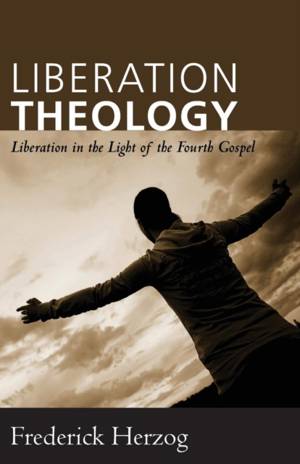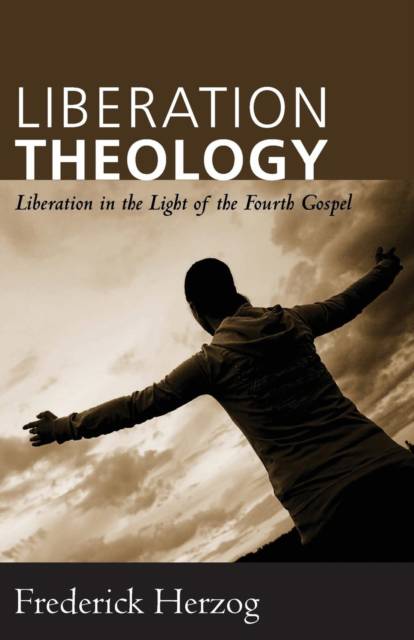
- Retrait gratuit dans votre magasin Club
- 7.000.000 titres dans notre catalogue
- Payer en toute sécurité
- Toujours un magasin près de chez vous
- Retrait gratuit dans votre magasin Club
- 7.000.0000 titres dans notre catalogue
- Payer en toute sécurité
- Toujours un magasin près de chez vous
Description
Description: Liberation Theology is the first serious acknowledgment by a white theologian of the challenge of Black Theology. It invites American theology to reconsider radically its foundations and to reorder its priorities. At a time when theology is often presented piecemeal, Frederick Herzog undertakes to ground Liberation Theology in the originating events of the Christian faith as a whole - in this instance, in the life, death, and resurrection of Christ as given in the Fourth Gospel. The systematic readings in the Gospel which he makes and from which emerge the principles of Liberation Theology are the heart of this book. Throughout, the author asks: How do we understand Christ as Liberator? The answer to this question, he maintains, determines whether or not we are still able to contemplate the Word as power and action. Written with contemporary directness and free of vague abstractions, the book casts theology into a new form to meet today's needs. The method of this new theology is confrontation, not correlation; its goal is liberation, not reformation; and it strives for a new space of freedom among people captive to the dehumanizing structures of modern theology. Endorsements: ""This is a new way of doing theology. Dr. Herzog's book is biblically oriented and is speaking a liberation language in the concrete trouble spots of our society at the same time. It may be the trailblazer of a relevant Christian lifestyle."" -Jürgen Moltmann ""A radical, risky, and powerful interpretation of the Fourth Gospel for our time as the call to liberation. In Herzog's passionate hermeneutic, St. John is understood in the light of the new politics, black consciousness, and the need for a corporate self and so for a new social and personal world. Less dogmatic and one-sided than the futurist eschatologies, this creative wedding of biblical interpretation and radical politics makes a real contribution, from which I have learned a great deal, to our barren American theological and churchly scene."" -Langdon Gilkey ""In a time like ours, when theologians are on the hunt for meaningful language about God and when many people are unclear and confused about God language, what Herzog has to say deserves very much to be in the center of theological discussion. This would not be the first time that the Bible has revitalized theology, faith, and the life of the church."" -Paul L. Lehman About the Contributor(s): Frederick Herzog (1925-1995) was born in Ashley, North Dakota, from German parents. He studied theology in Germany and Switzerland, got his doctorate from Princeton Theological Seminary, taught at Mission House Seminary in Sheboygan, Wisconsin, and was the last thirty-five years of his life professor of systematic theology at Duke University, where he initiated intensive academic exchanges with Bonn, Germany, and Lima, Peru. In the spring of 1970 he wrote the first North American article on Liberation Theology. In 1972 his Liberation Theology: Liberation in the Light of the Fourth Gospel forged a new way of writing theology by letting it grow out of biblical thoughts and images as well as the wrenching experiences of the civil rights struggle in the U.S. South. It was a daring challenge to traditional white theology, asking it to ""become black"" in solidarity with ""the wretched of the earth.""
Spécifications
Parties prenantes
- Auteur(s) :
- Editeur:
Contenu
- Nombre de pages :
- 288
- Langue:
- Anglais
Caractéristiques
- EAN:
- 9781620329252
- Date de parution :
- 29-03-13
- Format:
- Livre broché
- Format numérique:
- Trade paperback (VS)
- Dimensions :
- 137 mm x 213 mm
- Poids :
- 362 g

Les avis
Nous publions uniquement les avis qui respectent les conditions requises. Consultez nos conditions pour les avis.






